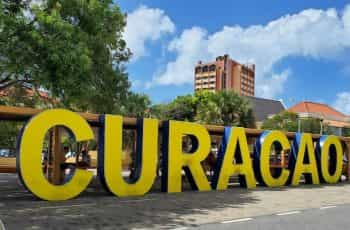Illegal Lottos in Costa Rica Under Scrutiny
Costa Rica’s government is reviewing Bill 21,632, which would not only further regulate the lottery and games of chance industry, but also prohibit illegal gaming that reduces funds for public projects through tax. This bill has been put on hold for over three years, due in part to more pressing concerns during the worst of the Covid-19 pandemic. Now that gaming establishments are up and running again, the issue has once more entered the fore and is in discussion within the legislature.

Costa Rica will consider a three-year-old gaming regulation bill in order to address clandestine activities in the country. Tingey Injury Law Firm/Unsplash
What is Costa Rica’s Bill 21,632?
Bill 21,632 in Costa Rica would expressly prohibit any unregulated or unlicensed gambling. That means that all gaming establishments offering lottery games and games of chance would have to have approval from Costa Rica’s Social Protection Board before selling their services and taking bets.
The idea behind the bill was initially to prevent illegal gaming operations from taking away profits that would otherwise go through legal, taxed gaming providers in Costa Rica. Those taxes are vital for public works projects for most governments, and in Costa Rica they go even further to help people living in vulnerable situations.
One deputy in particular has taken charge of the bill at this moment. That is Gilbert Jiménez, a member of the National Liberation Party (Partido Liberación Nacional), a social-democratic party with a few varying factions. Jiménez is expected to urge the Executive Branch to convene to discuss the bill as quickly as possible. Jiménez has stated that it is an urgent matter now due to the severity of the country’s money laundering situation at present. Jiménez and the National Liberation Party were also behind a recent initiative to move casino taxes towards funding for police officer training.
The bill is also supported by Costa Ricas’ Security and Drug Trafficking Commission. The commission’s president, Gustavo Viales, has spoken in support. He recently explained that the goal for the commission is to regulate commercial gaming so that the industry cannot continue to grow outside of the law.
He argued that these things must be legislated and controlled because illegally generated profits can then be put into further criminal activities. This includes money laundering, financial scamming, extortion and more, according to Viales.
The president of the commission went on to explain that the powers provided by this bill would not just go towards punishing small-time sellers. What the commission is more concerned about are the larger structures that enable the sellers. They want to shut down these structures and the people recruiting within them.
How will the bill be enforced?
If passed, it would be up to municipal governments to enforce the bill on a case-by-case basis. The legislature has determined that this is the most efficient way forward, as each municipality has a better grasp of clandestine gaming activities within its borders. They will of course have support from police and at the federal level to then fight such activities.
Once passed, municipal governments will be able to go after a host of illegal betting activities, like illegal lottery (both ticketed and electronic), illegal sportsbooks, video lotto, and other games of chance which lack the proper authorization.
Authorization will come from a federal organization, the Social Protection Board. The board’s president, Esmeralda Britton, has voiced her favor for the bill. According to Britton, Costa Rica has a major issue on its hands when it comes to clandestine betting and the unregulated profits it generates, but it is dealing with it using outdated tools and legislation.
Britton was firm in her belief that the best way to address this is to cut such illegal activity off at the pass, neutralizing the flow of money which keeps them going. She also reiterated the importance of making sure gaming profits are earmarked for social projects, as determined by the government.
 Online Casinos UK
Online Casinos UK



